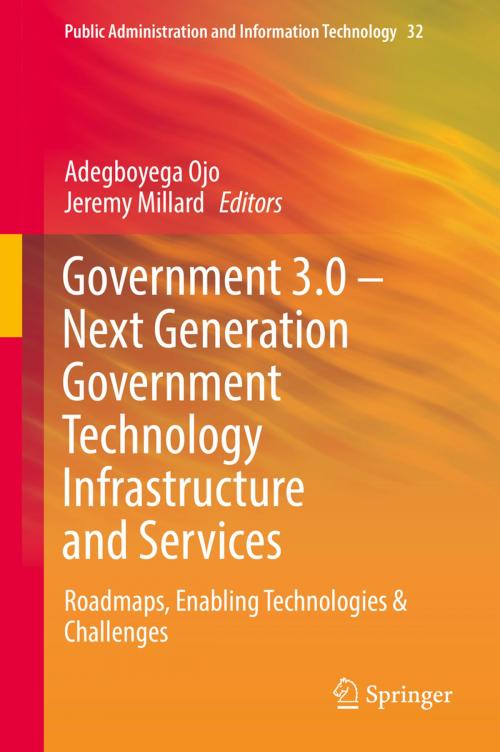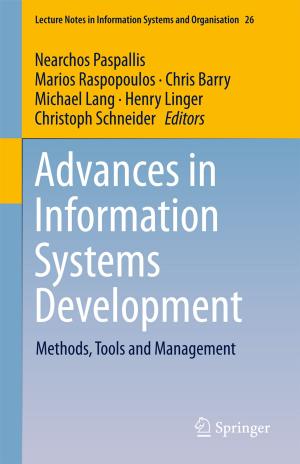Government 3.0 – Next Generation Government Technology Infrastructure and Services
Roadmaps, Enabling Technologies & Challenges
Nonfiction, Reference & Language, Law, Administrative Law & Regulatory Practice, Business & Finance, Management & Leadership, Production & Operations Management, Social & Cultural Studies, Political Science| Author: | ISBN: | 9783319637433 | |
| Publisher: | Springer International Publishing | Publication: | October 26, 2017 |
| Imprint: | Springer | Language: | English |
| Author: | |
| ISBN: | 9783319637433 |
| Publisher: | Springer International Publishing |
| Publication: | October 26, 2017 |
| Imprint: | Springer |
| Language: | English |
Historically, technological change has had significant effect on the locus of administrative activity, cost of carrying out administrative tasks, the skill sets needed by officials to effectively function, rules and regulations, and the types of interactions citizens have with their public authorities. Next generation Public Sector Innovation will be “Government 3.0” powered by innovations related to Open and big data, administrative and business process management, Internet-of-Things and blockchains for public sector innovation to drive improvements in service delivery, decision and policy making and resource management. This book provides fresh insights into this transformation while also examining possible negative side effects of the increasing ope
nness of governments through the adoption of these new innovations. The goal is for technology policy makers to engage with the visions of Government 3.0 . Researchers should be able to critically examine some of the innovations described in the book as the basis for developing research agendas related to challenges associated with the adoption and use of some of the associated technologies. The book serves as a rich source of materials from leading experts in the field that enables Public administration practitioners to better understand how these new technologies impact traditional public administration paradigms. The book is suitable for graduate courses in Public Sector Innovation, Innovation in Public Administration, E-Government and Information Systems. Public sector technology policy makers, e-government, information systems and public administration researchers and practitioners should all benefit from reading this book.
Historically, technological change has had significant effect on the locus of administrative activity, cost of carrying out administrative tasks, the skill sets needed by officials to effectively function, rules and regulations, and the types of interactions citizens have with their public authorities. Next generation Public Sector Innovation will be “Government 3.0” powered by innovations related to Open and big data, administrative and business process management, Internet-of-Things and blockchains for public sector innovation to drive improvements in service delivery, decision and policy making and resource management. This book provides fresh insights into this transformation while also examining possible negative side effects of the increasing ope
nness of governments through the adoption of these new innovations. The goal is for technology policy makers to engage with the visions of Government 3.0 . Researchers should be able to critically examine some of the innovations described in the book as the basis for developing research agendas related to challenges associated with the adoption and use of some of the associated technologies. The book serves as a rich source of materials from leading experts in the field that enables Public administration practitioners to better understand how these new technologies impact traditional public administration paradigms. The book is suitable for graduate courses in Public Sector Innovation, Innovation in Public Administration, E-Government and Information Systems. Public sector technology policy makers, e-government, information systems and public administration researchers and practitioners should all benefit from reading this book.















